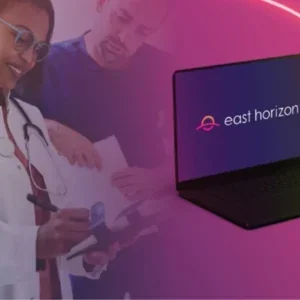How can data be better prioritised for drug development?
Ben Dudley: Many CROs focus almost exclusively on investigator site and clinical operations aspects of delivery. While this focus is important, particularly in terms of patient enrolment, it can result in the collection and management of data being treated as a secondary priority. This has become even more critical in the last five years, as the proportion of data collected through non-traditional means has exploded.
Our data-first approach excels in avoiding challenges, supports oversight by providing data-driven insights, and highlights opportunities to optimise submissions. Setting ourselves apart, MMS maintains a keen focus on data at every step.
“What makes the difference is that CROs like MMS deeply understand the risks in data and how to avoid or mitigate them. This can then help to prevent serious setbacks.
Why should biometrics be at the heart of development?
Biometrics – data management, data science, programming, and statistics – is often undervalued. Yet, data-related issues are huge risks to the success of a new medicine being developed. Recently, a JAMA article shared that scientific data deficiencies were 84.5 per cent of the reason why FDA Refuse-to-File letters are sent. In my opinion, the way to alleviate this is to treat biometrics as a linchpin.
Every data point needs to be meticulously collected, analysed, and interpreted – this is no secret. What makes the difference is that CROs like MMS deeply understand the risks in data and how to avoid or mitigate them. This can then help to prevent serious setbacks.
Does this approach apply to rescue studies?
Yes it certainly does! When a study is found to be in distress, MMS is often engaged to bring in our data-first approach and cutting-edge technologies to recover the study with minimal disruption incurred.
What makes our approach work is the assignment of a data project manager and an executive sponsor to rescue projects, and approaching the turnaround using a proven playbook to provide the framework.
This combination of people, process and technology, tailored to each unique situation has helped us recover difficult situations, on the way to achieving zero refusals to file in our company’s history.
Tell us more about how MMS approaches regulatory submissions.
To us, regulatory excellence is achieved by defining a clear roadmap to guide Sponsors through every step, in a truly consultative way. From IND submissions to Marketing Applications, this helps assure that no opportunity is overlooked.
One area that our scientists specialise in is expedited FDA programs like Fast Track, Breakthrough Therapy Designation, and Accelerated Approval in oncology drug development. Each designation offers distinct benefits, from increased communication and rolling reviews in Fast Track to the accelerated timelines and enhanced Agency guidance provided by Breakthrough Therapy Designation.
Through this, our biometrics and regulatory teams align to ensure that Sponsors meet required criteria and drive subsequent steps like Accelerated Approval with confidence.
Is there anything else you would like to add?
Of course! Speed is always going to be critical in drug development. Data delays can go on to significantly impact time-to-market, potentially costing millions and slowing lifesaving treatments. With data-driven methodologies, MMS has integrated biometrics, regulatory expertise, and a commitment to proactive planning to help Sponsors minimise risk and reduce timelines with precision.





